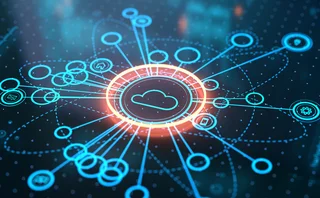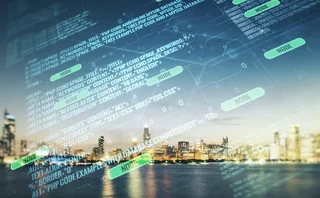Do People Still Matter?

When Waters hired me on the strength of my experience as editor of my hometown newspaper, my awareness of the capital markets was limited, and I’m not sure I’d ever pondered the existence of the technology that underpinned them. But over the last 10 years, I have come to admire the industry for its awesome intelligence, innovation, and truly impressive ability to generate and bandy about buzzwords—from the acronymized STP to CEP, SOAs to SLAs, to my personal, more conventional favorite, big data (it’s data, only BIG). What is possible with technology is truly spectacular—from algorithmic trading and predictive analytics, to setting the speed of light as a benchmark for latency.
But the transition from an industry built largely on relationships and trust to one run by machines was far from easy or smooth. When I joined Incisive Media in 2003, Dick Grasso was on his way out of the New York Stock Exchange and John Thain was coming in with plans to decimate the trading floor and usher in an era of electronic trading at NYSE. Traders and specialists were spooked—having no doubt foreseen their own demise—and warned that the loss of the human intervention in the markets could have drastic consequences.
About Relationships
We can debate whether they were right. But many saw Grasso as a Luddite, who wrangled a massive pay package out of an exchange that was headed for extinction without serious change. Once, at a pre-Sifma panel discussion held at the USS Intrepid on the Hudson River, a panelist prefaced his remarks about the exchange with, “Considering that we’re in a museum …” The audience laughed.
The over-the-counter (OTC) markets now confront a similar—if more complex—path to automation, brought about by many factors including regulations and client demands for transparency and accountability. But when I raised the topic at our recent Waters USA conference with a fixed-income technologist working at a global sell-side firm, he rolled his eyes and insisted that the OTC markets have always been, and will always be, about relationships—who you know and, especially, who you trust.
In fact, people and relationships matter in the capital markets, perhaps more than ever. In another simple example, the same technologist described how attitudes in different parts of the firm’s mortgage business varied according to whether they could see the names and addresses attached to the mortgages they handled, or whether they had been stripped out in the process of securitization. We are trained to innately value that information for a reason.
With a Handshake
My father-in-law spent his career working in commercial lending in London. He likes to tell me nostalgically that he worked in the markets at a time when people knew and trusted their counterparties, that deals were sealed with a handshake. I think even he acknowledges that a return to those days is as impractical as it is impossible. But this time of year, it’s always a good idea to remember that technology can do a lot of things—amazing, jaw-dropping things—but the human element and those personal relationships, however obscured or abstracted, still find a way to matter.
Only users who have a paid subscription or are part of a corporate subscription are able to print or copy content.
To access these options, along with all other subscription benefits, please contact info@waterstechnology.com or view our subscription options here: http://subscriptions.waterstechnology.com/subscribe
You are currently unable to print this content. Please contact info@waterstechnology.com to find out more.
You are currently unable to copy this content. Please contact info@waterstechnology.com to find out more.
Copyright Infopro Digital Limited. All rights reserved.
As outlined in our terms and conditions, https://www.infopro-digital.com/terms-and-conditions/subscriptions/ (point 2.4), printing is limited to a single copy.
If you would like to purchase additional rights please email info@waterstechnology.com
Copyright Infopro Digital Limited. All rights reserved.
You may share this content using our article tools. As outlined in our terms and conditions, https://www.infopro-digital.com/terms-and-conditions/subscriptions/ (clause 2.4), an Authorised User may only make one copy of the materials for their own personal use. You must also comply with the restrictions in clause 2.5.
If you would like to purchase additional rights please email info@waterstechnology.com
More on Emerging Technologies
Nasdaq, AWS offer cloud exchange in a box for regional venues
The companies will leverage the experience gained from their relationship to provide an expanded range of services, including cloud and AI capabilities, to other market operators.
OCC’s security chief on generative AI with guardrails
Clearing house looks to scale technology across risk and data operations—but safety is still the watchword.
Bank of America reduces, reuses, and recycles tech for markets division
Voice of the CTO: When it comes to the old build, buy, or borrow debate, Ashok Krishnan and his team are increasingly leaning into repurposing tech that is tried and true.
Waters Wavelength Ep. 313: FIS Global’s Jon Hodges
This week, Jon Hodges, head of trading and asset services for Apac at FIS Global, joins the podcast to talk about how firms in Asia-Pacific approach AI and data.
Project Condor: Inside the data exercise expanding Man Group’s universe
Voice of the CTO: The investment management firm is strategically restructuring its data and trading architecture.
BNP Paribas explores GenAI for securities services business
The bank recently released a new web app for its client portal to modernize its tech stack.
Bank of America and AI, exchanges feud with researchers, a potential EU tax on US tech, and more
The Waters Cooler: Broadridge settles repos in real time, Market Structure Partners strikes back at European exchanges, and a scandal unfolds in Boston in this week’s news roundup.
Bloomberg rolls out GenAI-powered Document Insights
The data giant’s newest generative AI tool allows analysts to query documents using a natural-language interface.







